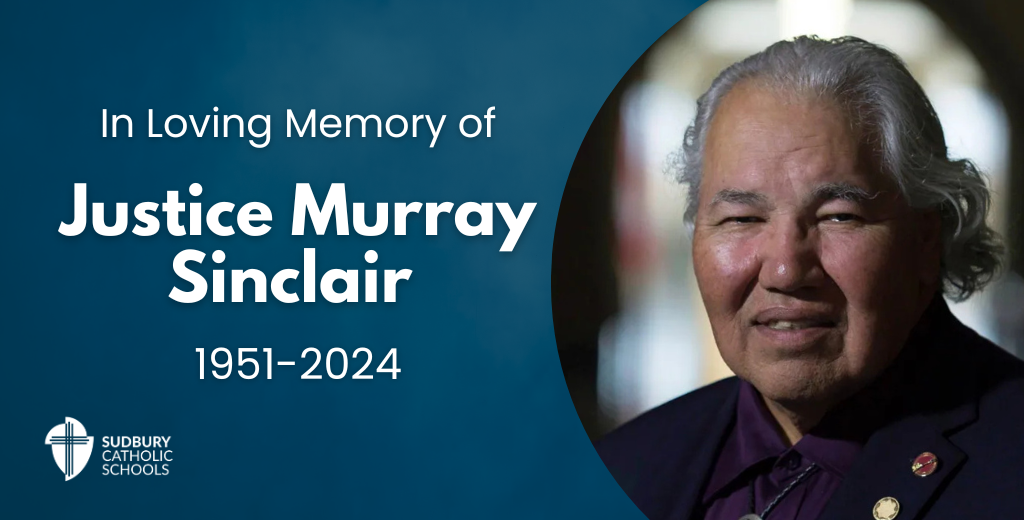November 4, 2024, was a sad day for First Nations, Canada, and the world. Justice Murray Sinclair, former Senator, Midewin Lodge Member, Father, Grandfather, Teacher, and Reconciliation Leader known to Spirit as Mazina Giizhik, passed away at age 73.
ABOUT JUSTICE MURRAY SINCLAIR
As an esteemed Anishinaabe leader, Justice Murray Sinclair leaves behind a remarkable legacy of advocacy for Indigenous rights, justice, and reconciliation in Canada. His dedication to truth and healing was exemplified through his role as Chair of the Truth and Reconciliation Commission, where he worked tirelessly to expose the injustices of the residential school system and promote a path toward reconciliation.
Throughout his career, Mr. Sinclair’s commitment to reconciliation has left a lasting impact on our Nation’s legal system and Canadian society. His wisdom, resilience, humility, and determination will continue to inspire generations to come. Murray Sinclair not only helped the Anishinaabek, but also shared a vision of what justice could be for all peoples of the world.
As we remember Senator Murray Sinclair and his significant contributions, let us reflect on the importance of education and understanding in building a more equitable future for Indigenous peoples. In the spirit of reconciliation, we encourage our Sudbury Catholic District School Board community to learn more about Murray Sinclair’s contributions, the history and impact of his work in healthcare, law, and politics, and to engage in open dialogue about our shared journey and responsibility towards reconciliation.
In his words to educators, Mr. Sinclair said: “It’s very much about ensuring that the human beings you are educating are given the opportunity to be the best human beings they can be.”
Our thoughts are with Murray Sinclair’s family, friends, and all those who have been touched by his life and his work. May we honour his memory by continuing to work towards justice, healing, and reconciliation in Canada.
Baamaapii Kaawaabmin Murray Sinclair, Chi Miigwech, for your Service.
